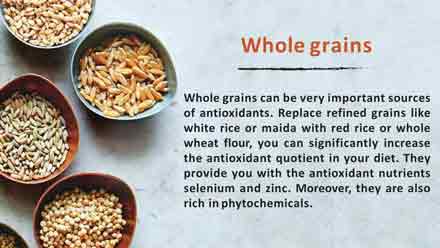You can feel better, reduce your risk of disease and save money by adopting a healthy lifestyle. It’s not as hard as you might think to make positive changes to your diet, drinking habits and exercise routine.
For one person, a healthy lifestyle might mean running two marathons a year and eating a ketogenic diet, while another may prefer yoga and hikes paired with fresh vegetables and green smoothies.
Eat More Vegetables
Eating well is a key piece to the health puzzle. Whether you’re looking to lose weight, reduce joint pain or improve your digestive health, it’s important to eat a diet rich in vegetables.
But if you find yourself avoiding salads and viewing piles of veggies on your plate as childhood punishment, it can be tough to meet recommended vegetable intakes. The good news is that you can make simple changes to your meals and snacks to eat more veggies.
Start the day with a veggie-rich breakfast by mixing in some spinach, kale or cooked leftover veggies into your eggs or making a veggie hash with sweet potatoes and onions. Aim for one to two servings of veggies at each meal. If you’re a soup lover, adding in vegetables like pumpkin, peas and mushrooms can increase the size of your serving. Also, try using veggies as scoops with dips—like carrots, cucumbers and radishes. This can help reduce your carbohydrate and fat intake while increasing your fiber and vitamin content.
Replace Refined Grains with Whole Grains

A diet that includes whole grains can improve your cholesterol levels, lipid metabolism, blood sugar regulation, and weight. It can also reduce your risk of heart disease, diabetes, and certain cancers.
Grains contain nutrients (like iron and fiber) and phytochemicals that help protect against chronic diseases. In addition, they provide important energy sources.
In contrast, refined grains have been milled to remove the bran and germ. This process makes them finer and increases their shelf life, but it also strips them of nutrients, including B vitamins and iron. Examples of refined grains include white flour, grits, and bread.
To get the health benefits of grains, replace refined grains with whole grain products. Choose foods that have “whole grain” or “whole wheat” at the top of the ingredient list. You can also look for the word “enriched” on the label, which means that the product has had B vitamins and iron added back. However, if you eat enriched grains, make sure to also consume other foods rich in these nutrients, biocal in pharmacies.
Increase Your Physical Activity
Keeping your body active can help you stay at a healthy weight, reduce the risk of heart disease and diabetes and improve your overall health. Try to get at least 150 minutes of moderate-intensity physical activity per week, which can be broken up into three ten-minute sessions or more if you prefer.
You should also include muscle-strengthening activities that work your entire body on two or more days a week. These types of activities can be done with exercise equipment such as free weights or hand-held weights, or simply by doing exercises that will work your muscles to the point of feeling tired.
It may take a while for these new habits to become part of your daily routine, but it is important to commit to them for the long term. By following these simple tips, you can start to build a foundation for your healthy lifestyle that will benefit you now and in the future.
Limit Your Alcohol Consumption
While drinking may be a common social activity, research shows it can have negative effects on your health. Even for people who drink less than two drinks a day, cutting back can improve your health.
Try to start small and set a goal for yourself. Then, work on forming new habits.
It can be helpful to use strategies like counting and measuring your alcohol consumption. It’s also a good idea to have some days without alcohol.
You can also try eating food before and during your drinks to slow down how quickly alcohol enters your body, according to the National Institute on Alcohol Abuse and Addiction (NIAAA).
Conclusion:
Lastly, removing alcohol from your home can help you resist temptation. You can also make plans for when cravings come up, such as reminding yourself of your reasons to change, talking with a friend or exercising. The NIAAA recommends distracting yourself when an urge to drink strikes by engaging in a healthy hobby or taking a short walk.
- How to Choose the Right Abrasive Tools and Supplies for Your Workshop? - September 28, 2024
- The Role of Sports Nutrition Supplement in Muscle Building - September 23, 2024
- The Evolution of Hydraulic CNC Press Brakes in China: From Traditional to High-Tech - September 4, 2024

